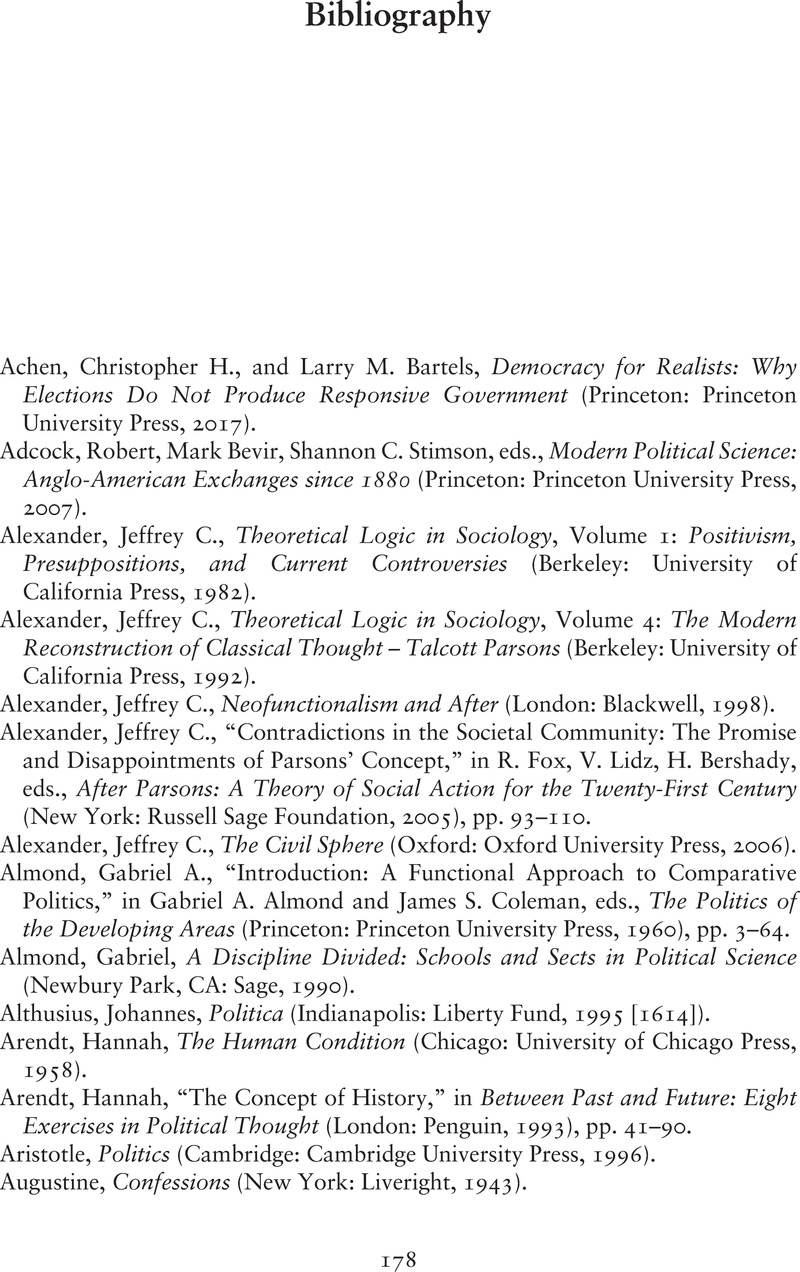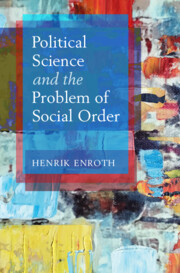Book contents
- Political Science and the Problem of Social Order
- Political Science and the Problem of Social Order
- Copyright page
- Dedication
- Contents
- Preface
- 1 The Problem of Social Order and the History of Political Science
- 2 Plurality and Unity
- 3 Processing Community
- 4 Bringing Community Back In
- 5 Conflict and Consensus
- 6 Support for the System
- 7 Questioning Consensus
- 8 Power and Participation
- 9 The Problem of Social Order and the Future of Political Science
- Bibliography
- Index
- References
Bibliography
Published online by Cambridge University Press: 17 March 2022
- Political Science and the Problem of Social Order
- Political Science and the Problem of Social Order
- Copyright page
- Dedication
- Contents
- Preface
- 1 The Problem of Social Order and the History of Political Science
- 2 Plurality and Unity
- 3 Processing Community
- 4 Bringing Community Back In
- 5 Conflict and Consensus
- 6 Support for the System
- 7 Questioning Consensus
- 8 Power and Participation
- 9 The Problem of Social Order and the Future of Political Science
- Bibliography
- Index
- References
Summary

- Type
- Chapter
- Information
- Political Science and the Problem of Social Order , pp. 178 - 192Publisher: Cambridge University PressPrint publication year: 2022

